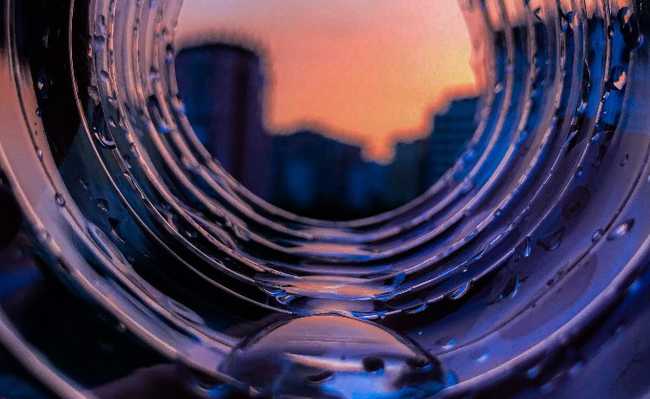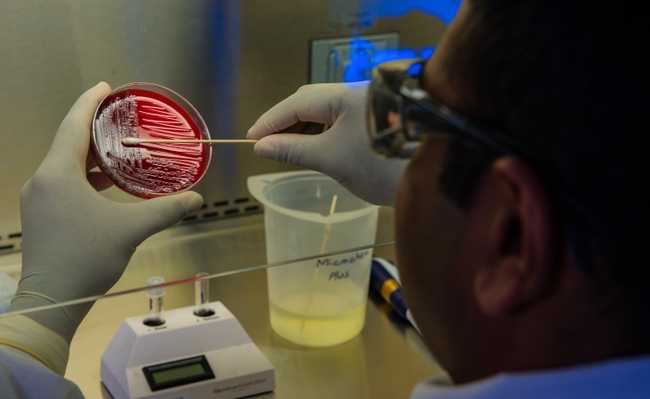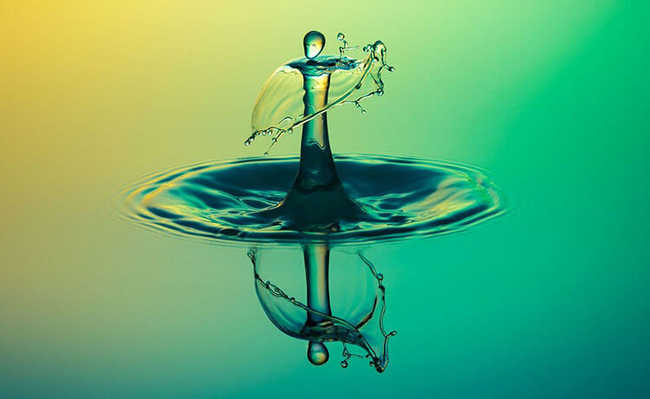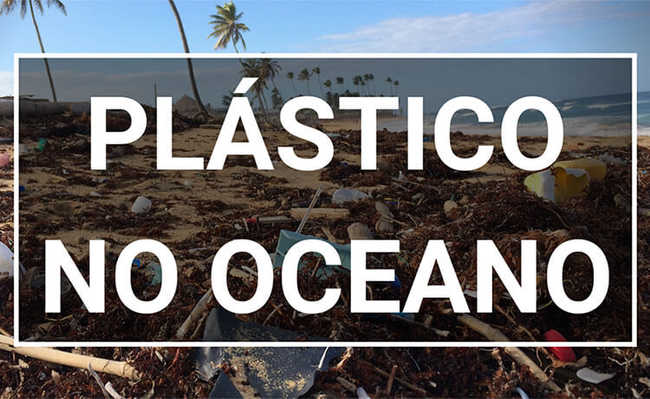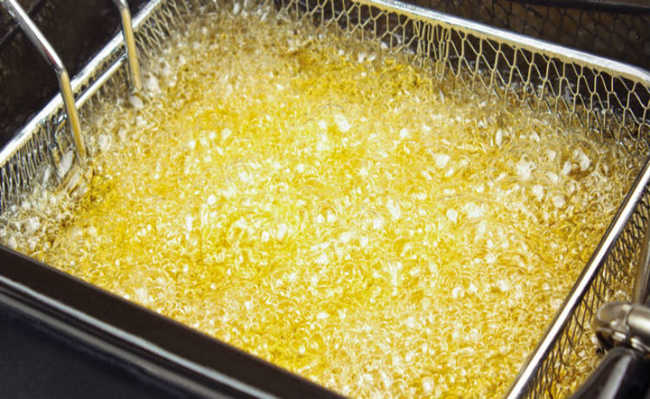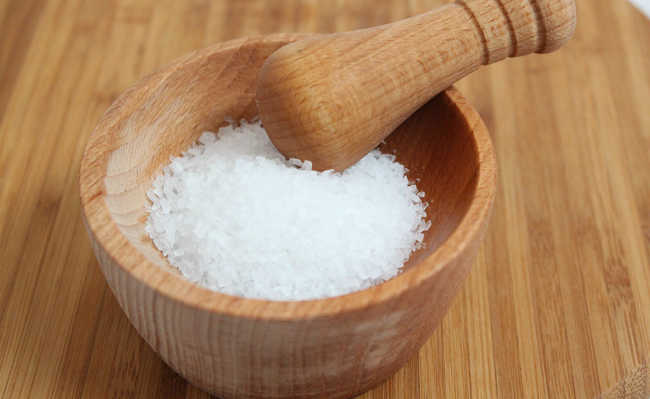Is sparkling water bad?
Despite some cons, sparkling water is a good alternative to sugary soft drinks and is good for digestion and constipation.
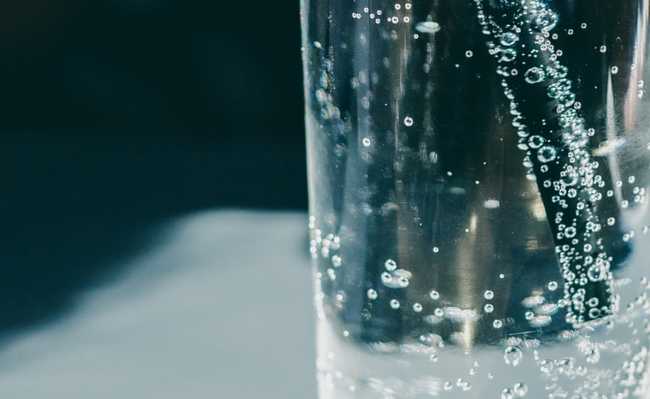
Ryan Zi's edited and resized image is available on Unsplash
Artificial sparkling water is made by infusing carbon dioxide under pressure into mineral water. But it can also be found naturally, like Perrier (French) and San Pellegrino (Italian) waters. In general, sparkling water is refreshing and a good alternative to sugary soft drinks. Some studies have even shown that drinking can be good for digestion and increase satiety after meals.
- Sugary drinks such as soft drinks are associated with 180,000 deaths worldwide
However, the question that remains is: is sparkling water bad? To answer this question, we first need to consider a few points. Understand:
The carbon dioxide used to make sparkling water reacts chemically to produce carbonic acid - a weak acid that stimulates the same nerve receptors as mustard. This triggers a feeling that can be pleasurable or uncomfortable for some people (see studies about it here: 1, 2).
Another characteristic of sparkling water is its slightly acidic pH (from 3 to 4), which, contrary to what some people believe, does not make the body acidic. This is because the kidneys and lungs expel excess carbon dioxide, keeping the blood pH slightly alkaline (around 7.35 to 7.45), regardless of what the person ingested or drank.
Is it bad for your teeth?
One of the biggest concerns about sparkling water is its effect on teeth, as tooth enamel is directly exposed to acid from this type of drink.
There is little research on the subject, but an analysis found that sparkling mineral water caused more damage to tooth enamel compared to regular water.
In another study, carbonated drinks showed a strong potential to destroy tooth enamel - but only when they contained sugar. O Gatorade, a non-carbonated sweet beverage, has been shown to be more harmful to tooth enamel than a carbonated sugar-free beverage (Diet Coke).
A review of several studies found that the combination of sugar and carbonation can lead to severe tooth decay. However, simple sparkling water appears to pose little risk to oral health. Only the sugary types are harmful (see study about it here: 3).
If you are concerned about your oral health and do not want to give up sparkling water, try drinking it with a meal or rinsing your mouth with plain water after drinking it.
Can improve digestive capacity
Studies suggest that sparkling water can improve swallowing ability in young and elderly adults (see studies here: 4, 5, 6).
In a study carried out with 16 healthy people who ingested different liquids, carbonated water was shown to be able to stimulate more intensely the nerves responsible for swallowing. Another study showed that the combination of cold temperature and carbonation enhanced these beneficial effects.
Can increase satiety
Carbonated carbonated water can also prolong satiety after meals, more than plain water, as it makes the food stay longer in the stomach, which can prolong satiety (see study on this: 7).
An analysis of 19 healthy young women showed that satiety was higher after participants drank 250 ml of sparkling water compared to regular water.
Can reduce constipation
In a two-week study of 40 elderly people who suffered strokes, the average frequency of bowel movement nearly doubled in the group that drank carbonated water compared to the group that drank tap water. In addition, participants reported a 58% decrease in constipation symptoms.
There is also evidence that sparkling water can improve other symptoms of indigestion, including upset stomach.
A study that examined 21 people with chronic digestive problems showed that after 15 days, those who drank carbonated water had significant improvements in digestive symptoms, constipation and emptying of the gallbladder.
Does it affect bone health?
Many people believe that carbonated drinks such as sparkling water are bad for the bones due to the high acid content. However, some studies suggest that carbonation itself is not to blame.
A large observational study of more than 2,500 people found that cola drinks were the only ones associated with significantly lower bone mineral density. Carbonated water appears to have no effect on bone health.
Unlike sparkling water and other carbonated drinks, cola drinks contain a lot of phosphorus. Researchers believe that people who consume this type of beverage end up acquiring a decrease in calcium levels due to the influence of phosphorus and low calcium intake.
In another study, adolescent girls who consumed carbonated beverages had lower bone mineral density. But this has been attributed to beverages that have replaced milk in their diet, resulting in inadequate calcium intake.
In a controlled study of 18 postmenopausal women, it was shown that consuming a liter of soda-rich carbonated water daily for eight weeks led to better calcium retention than drinking regular mineral water. Furthermore, no negative effects on bone health were observed in the sparkling water group.
Animal research suggests that carbonated water may even improve bone health. According to one survey, supplementing laying hens' diets with carbonated water for six weeks led to an increase in leg bone strength compared to tap water.
Does it affect heart health?
A study of 18 postmenopausal women showed that drinking sodium-rich carbonated water lowered levels of LDL cholesterol (known as "bad" cholesterol), inflammatory markers, and blood sugar; and it also increased HDL cholesterol, considered "good".
- Does altered cholesterol have symptoms? Know what it is and how to prevent it
The same research also concluded that the estimated risk of developing heart disease within ten years was 35% lower for those who drank sparkling water compared to those who drank still water.
But as this study was small, more analysis is needed to conclude whether, in fact, sparkling water is good for heart health.

